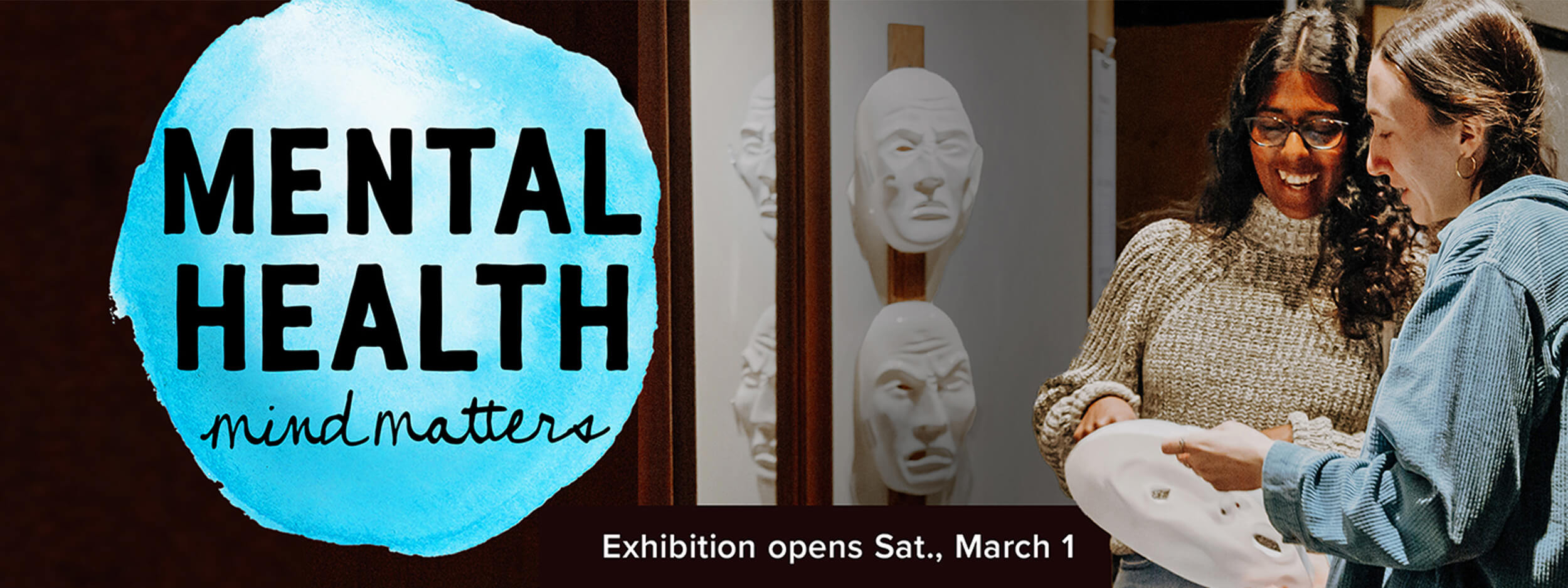

Mental Health: Mind Matters
On display Sat., March 1—Sun., Aug. 17
Included with General Admission
Break the stigma. Build understanding. Start the conversation.
Step into an immersive journey designed to break stigma, build understanding, and spark important conversations. The “Mental Health: Mind Matters” traveling exhibition brings the science of mental health to life through immersive exhibits and personal stories, offering a deeper look into the complexities of mental well-being.
This experience is included with General Admission to Carnegie Science Center.
Step into the Science of Mental Health
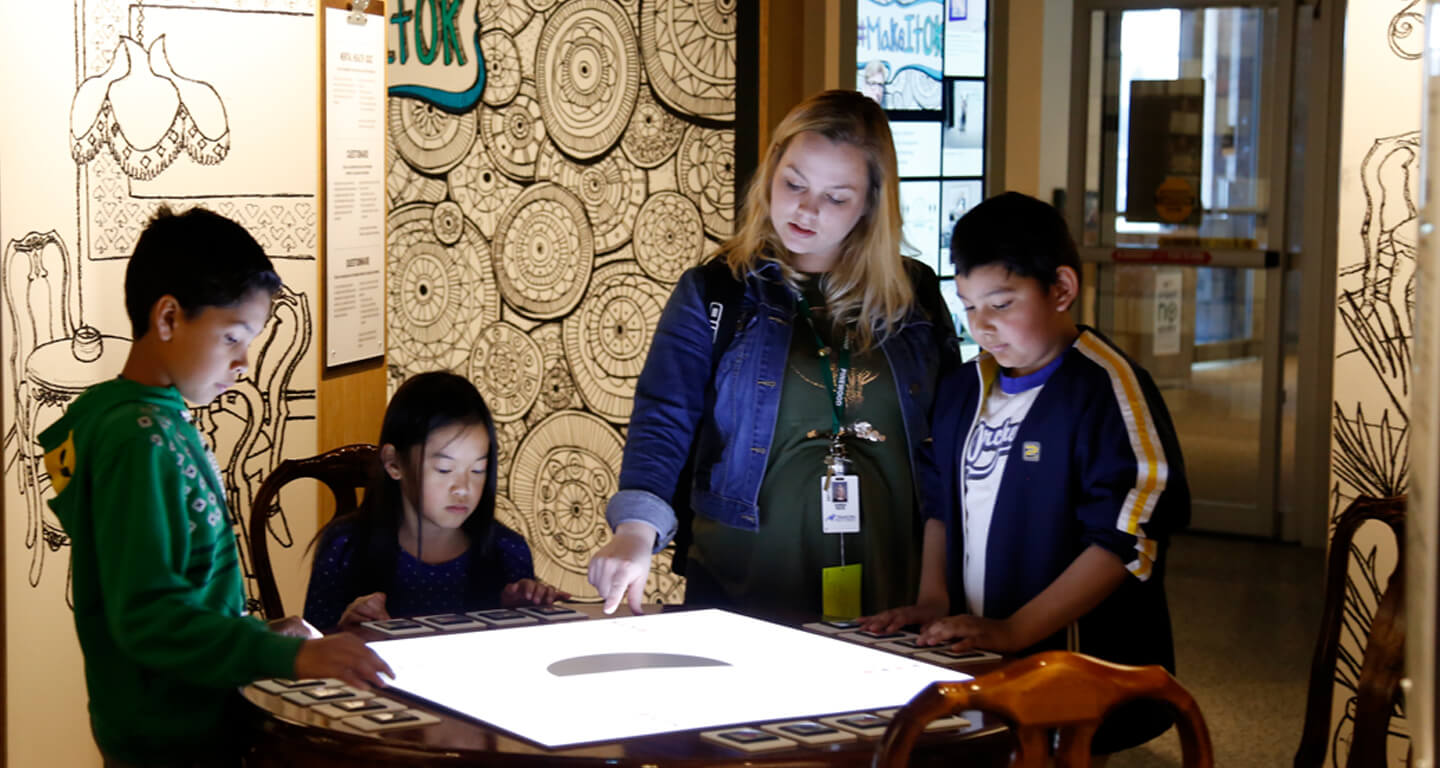
Mental health is a critical part of human biology. In this section, explore the latest research on brain function, emotions, and the factors that shape our mental well-being.
- What is mental health? Learn how mental wellbeing is influenced by genetics, environment, and life experiences.
- How does the brain process emotions? Discover the science behind stress, fear, and joy.
- What happens when mental illness develops? Examine the symptoms, causes, and treatments of common conditions like anxiety, PTSD, bipolar disorder, and eating disorders.
Experience Mental Health Challenges Firsthand
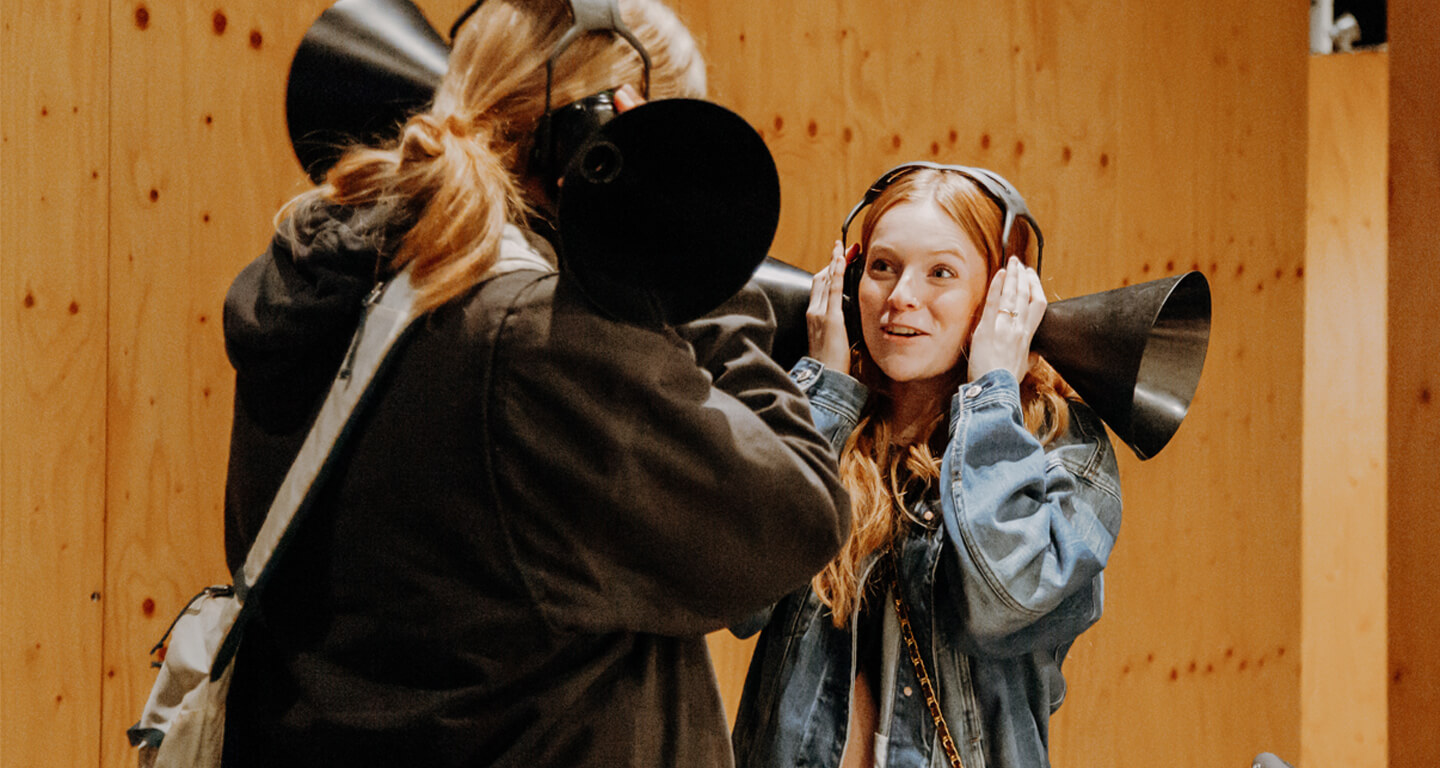
Understanding mental health starts with seeing the world through another’s eyes. These exhibits provide a powerful look at how people experience mental health conditions in daily life.
- The noise of psychosis: Put on noise-distorting headphones to simulate the experience of auditory hallucinations and the challenge of filtering out everyday sounds.
- The weight of worry: Write down your fears and concerns, then shred them away in a symbolic act of letting go.
- Inside someone’s else’s story: Step into an immersive space and listen to individuals describe their personal journeys with mental illness.
Engage, Express, and Strengthen Your Mind
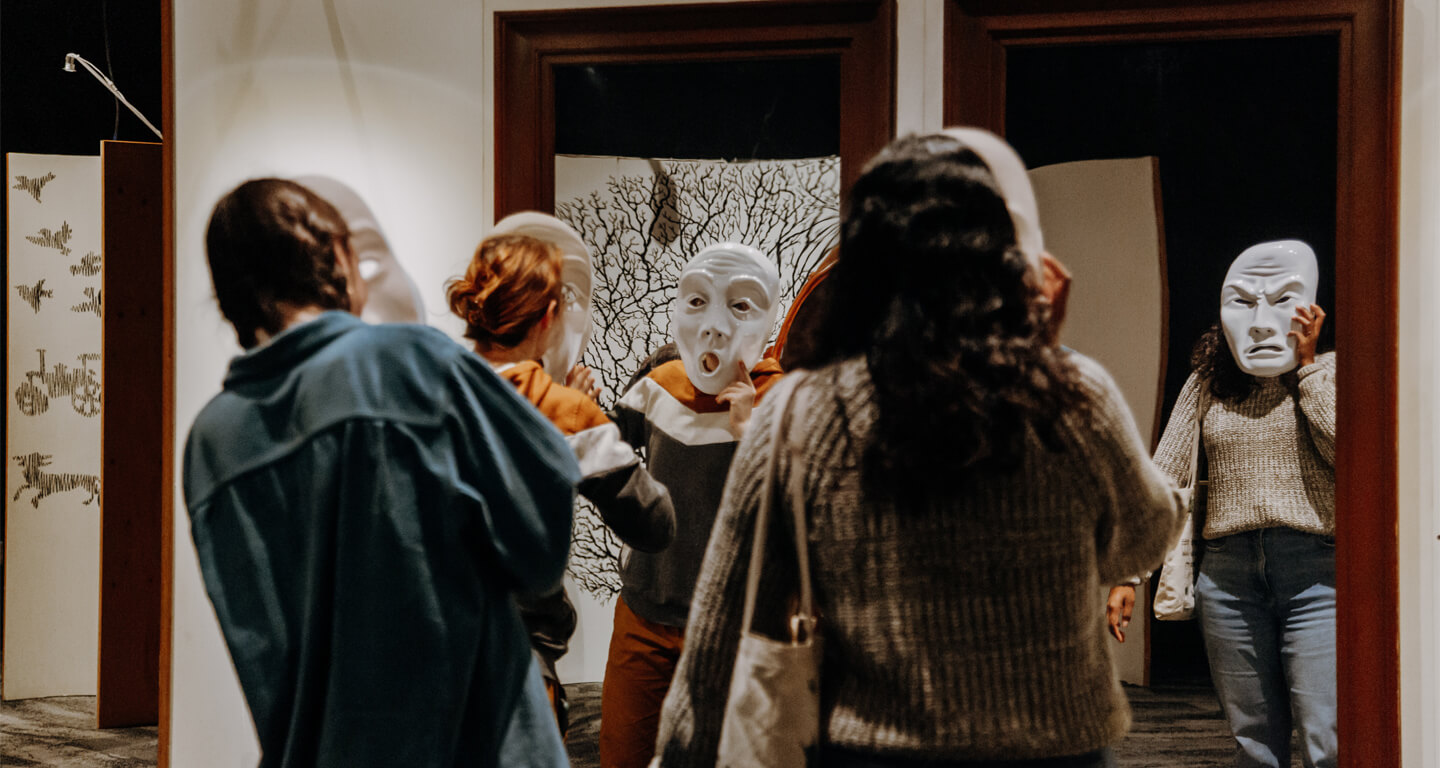
Mental health isn’t just about struggles – it’s also about resilience and self-care. Participate in activities that promote emotional regulation and self-expression.
- Move and create: Dance like popcorn, paint with water, or write down your thoughts – expressive activities help process emotions and build mental resilience.
- Face your fears: Step into an immersive, full-body game where confronting scary creatures in a dark forest mirrors the real-life process of overcoming fear.
- Find your calm: Engage with guided breathing exercises and calming visual displays that demonstrate mindfulness techniques.
Let’s Talk About It
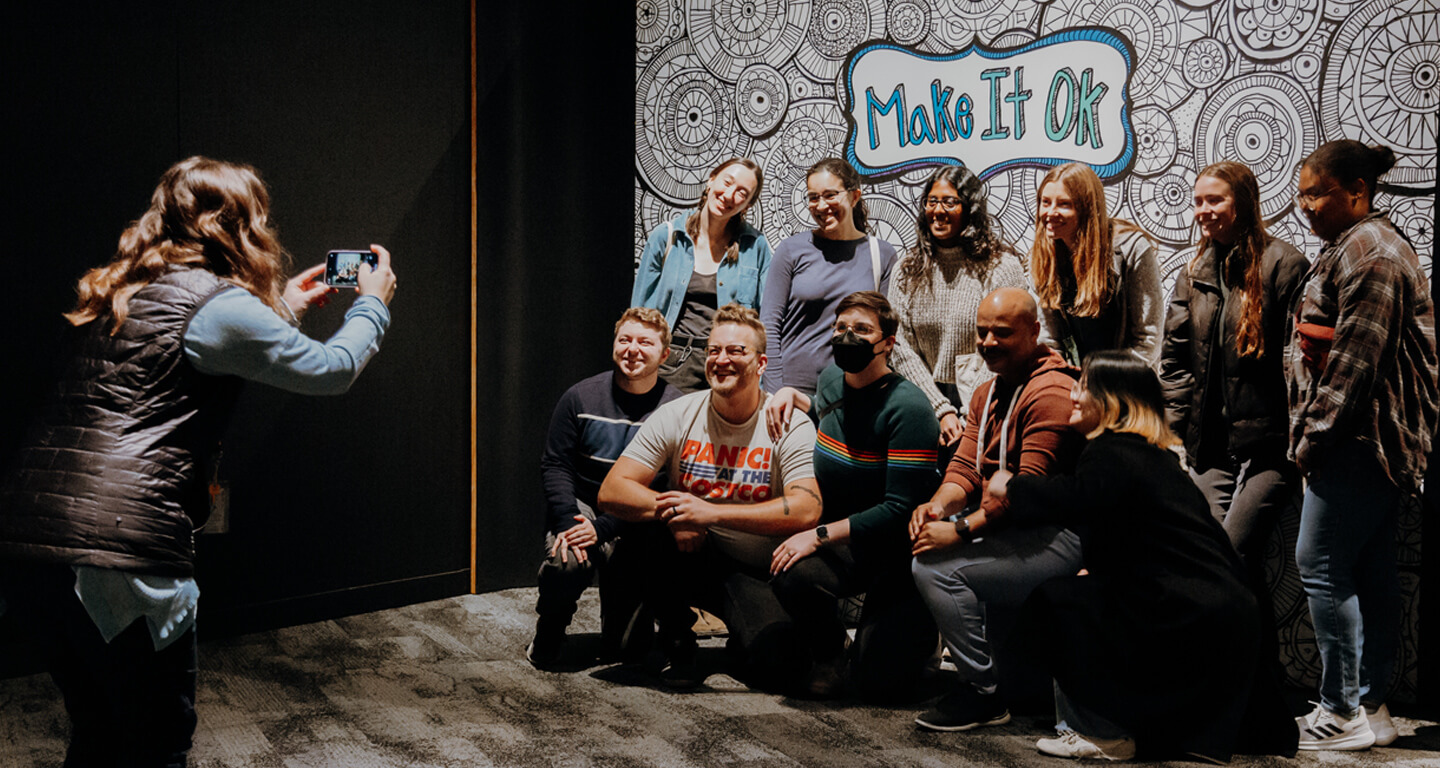
Mental health is just as important as physical health. It’s not a choice, a weakness, or a personal flaw – it’s a fundamental part of human well-being.
Did you know?
- One in five adults in the U.S. experience a mental illness each year (National Alliance on Mental Illness).
- In Pennsylvania alone, 1.8 million adults – more than six times the population of Pittsburgh – live with a mental health condition (National Alliance on Mental Illness).
By understanding mental health, we can break the stigma, support one another, and create a culture where seeking help is not just accepted but encouraged.
Community Health Partners
Throughout the exhibit’s run, we’re partnering with local organizations to host programs, discussions, and resource-sharing on-site at the Science Center. Join us on select dates for special presentations from:
- Casa San Jose – March 29, May 17 and July 12
- Pittsburgh Action Against Rape – April 5, 9, 12, 16, 23, and 26
- Carnegie Museum of Art – April 19, June 21, and July 19
- Crisis Center North – April 19, May 3, June 18, July 9, July 19, and Aug. 13
- Jewish Family and Community Services (JFCS) – April 30 and May 4
- Pittsburgh Pirates – Saturdays, May 10 and May 24
- Teen SCREEN Study – May 14 and June 28
- Steel Smiling – Sat., Aug. 16
- Allegheny Health Network – Chill Project
- Carnegie Library of Pittsburgh
- Community Human Services
- PUMP
- UPMC Pediatrics
Check back for more event details!
Content Advisory
Some interactive elements simulate the experiences of individuals with mental health conditions. For full details on the exhibit content, please review the Family Guide ![]() or Educator Guide
or Educator Guide ![]() . You can also learn more in our Frequently Asked Questions below.
. You can also learn more in our Frequently Asked Questions below.
Mental Health Crisis Resources
Crisis Resources
National Suicide Prevention Lifeline
1.800.273.8255
https://suicidepreventionlifeline.org/ ![]()
Crisis Text Hotline
Text “HOME” to 741741
https://www.crisistextline.org/ ![]()
Allegheny County
1.888.796.8226
Resolve Crisis Network
https://www.upmc.com/services/behavioral-health/resolve-crisis-services ![]()
Washington County
724.225.6940
Washington County MH/MR Mental Health Emergency Services
https://washington.pa.networkofcare.org/mh/emergency-services.asp ![]()
Westmoreland County
1.800.836.6010
Westmoreland Crisis Services
http://westmorelandca.org/crisis-hotline-mobile/ ![]()
Pittsburgh Action Against Rape
1.866.363.7273
https://paar.net/ ![]()
National Domestic Violence Hotline
1.800.799.7233
https://www.thehotline.org/ ![]()
Frequently Asked Questions
What is Mental Health: Mind Matters?
“Mental Health: Mind Matters” is an interactive traveling exhibition that explores the science of mental health through engaging activities, real stories, and immersive experiences. It aims to break stigma, build understanding, and encourage open conversations about mental well-being.
Is this exhibit appropriate for children?
This exhibit is designed to create a safe space for dialogue, and mental health is an important thing to talk about with children. Some content in the exhibition may not be suitable for young visitors under age 11.
The exhibit addresses topics such as depression, anxiety, bipolar, eating disorders, schizophrenia, post-traumatic stress disorders, and substance-use disorders. Caregivers are encouraged to review the exhibits’ themes in the Family Guide ![]() and determine what is best for their family. Educators can review the Educator Guide here
and determine what is best for their family. Educators can review the Educator Guide here ![]() .
.
Will there be mental health professionals on site?
Throughout the exhibit’s run, we’re partnering with local mental health organizations to provide resources, programs, and discussions. However, mental health professionals will not be present at all times. If you or someone you know needs immediate support, please refer to the crisis resources listed in the exhibit.
What if I find the exhibit distressing?
We understand that some topics in this exhibit may be difficult. If you feel overwhelmed, we encourage you to step away, take a break in a quiet area, or speak with a staff member. Mental health crisis resources are also available for additional support.
Is this exhibit accessible for all visitors?
Yes, “Mental Health: Mind Matters” is designed to be accessible to all visitors. The exhibit features a variety of interactive elements, including visual, auditory, and hands-on experiences. In addition, there are text panels available in Spanish and French. If you have a specific accessibility question, please contact our team at accessibility@carnegiesciencecenter.org.
Do I need a special ticket to visit this exhibit?
“Mental Health: Mind Matters” is included with General Admission to Carnegie Science Center.
Do groups receive discounts?
Yes! Groups of 15 or more people receive a discount on General Admission when they book their visit at least two weeks in advance. Call 412.237.3400 to book a group visit today.
- Monday–Friday Group Rate: $10 per person
- Saturday–Sunday Group Rate: $13 per person
Can I take photos in the exhibit?
Photography is allowed, but we encourage visitors to be mindful and respectful of others’ experiences.
How long does it take to go through the exhibit?
The average visit lasts between 40 minutes to an hour, but you are welcome to explore at your own pace.
When is this exhibition on display?
Sat., March 1, 2025—Sun., Aug. 17
Are there additional mental health programs or events happening during the exhibit’s run?
Yes! We are hosting a variety of programs in collaboration with community partners. Check the Community Health Partners section above for upcoming events and discussions.






